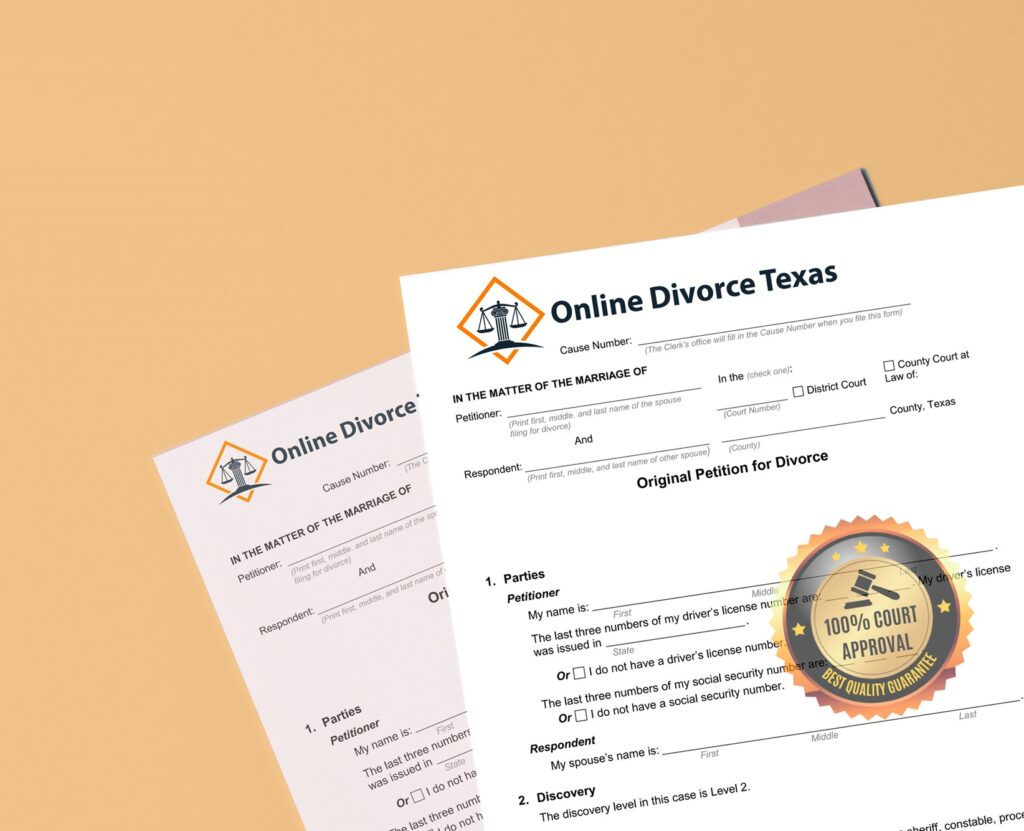The concepts of divorce and annulment are often confused because they are both formal proceedings that terminate a marriage. However, while a divorce acknowledges that a marriage has come to an end, an annulment declares that the marriage was never valid from the start. This article provides a little guidance on annulment in Texas and will help to understand the difference between annulment and divorce.
What Qualifies for an Annulment in Texas?
The marriage annulment definition emphasizes that the marriage was void in the first place. As a result, once the annulment is finalized in court, the individuals are considered as never married.
How to Get an Annulment in Texas
There are some ground rules a person petitioning for annulment should take into consideration:
- To file for annulment, you only need to show that you were married in Texas OR that either party currently lives in Texas (there is no 6-month residency requirement for annulment as there is for divorce).
- You may file for annulment in the county where the marriage took place, where the respondent resides, or where the petitioner resides if the respondent lives out of state.

The steps of getting an annulment are the following:
- After a petitioner files for an annulment with the court, the respondent will be notified with a court summons.
- Afterward, a petitioner should appear in court and present evidence in front of the judge or jury.
- If the grounds for the annulment are sufficient, the marriage will be considered as such that never happened.
A consultation with a lawyer can help find the answers to questions like “Do you need both signatures for an annulment?” or “What is the cost of annulment in Texas?” as it all might depend on your personal case.
If you’re searching for a straightforward no-fault divorce option in Texas, our organization will help you with the drafting of uncontested divorce paperwork. It is important to hire a qualified attorney if you need Texas law assistance in a contested or fault-based divorce.
Grounds for Annulment vs. Divorce in Texas
The crucial difference between annulment and divorce lies in the grounds for the termination of marriage. Only specific circumstances listed in Texas Family Code can be considered valid reasons for annulment. The list below provides detailed information on the grounds for annulment in Texas:
- One of the spouses was not eighteen years old at the moment of marriage and didn’t have permission from a parent or a guardian.
- Marriages between close relatives (incest) or involving bigamy are considered void from the start under Texas law.Unlike a standard annulment, there is generally no deadline to file a “Suit to Declare Marriage Void” in these cases, and it can even be filed after a spouse has passed away.
- One of the spouses concealed the fact of being married to another person or had obtained a divorce less than 30 days before the new marriage took place.
- One of the spouses suffers from mental incapacity or was under the influence of alcohol or drugs at the moment of marriage, which limited their capacity to consent to the marriage.
- One of the spouses suffers from permanent impotency, and the other spouse was unaware of this fact before the marriage.
- The marriage ceremony took place less than 72 hours after the marriage license was issued, which violates the Texas waiting period for marriage. Note: A petition for annulment on this ground must be filed within 30 days of the ceremony.
- The fraud, duress, or force lead to the marriage. It may include the situation when one of the spouses was misled, and the intentions to get married were not sincere, like when the true reason of marriage was not love but a desire of solving an immigration issue.
It is critical to remember that marriage cannot be annulled if the couple continues living together after the ground for the annulment has been revealed.

Unlike annulment, grounds for divorce in Texas can be fault- or no-fault-based. The most common reasons for a no-fault divorce are insupportability, living apart for more than three years, and the case when one of the spouses has been confined in a psychiatric hospital, and the recovery is unlikely to happen.
The list of the grounds for a fault divorce in Texas includes:
- Cruelty. The reason for filing for a divorce is that one spouse’s cruel behavior makes a future living together impossible. It can refer to both the physical and mental suffering.
- Adultery. When one of the partners has committed an affair, it is important to have proof of adultery for the court as mere suggestions might not be acceptable.
- Abandonment. One of the spouses has voluntarily left the partner with no intention to return. The period sufficient for filing for a divorce is one year of living apart.
- Conviction of a felony. If one of the spouses is imprisoned for more than one year and has not been pardoned, then the other spouse is entitled to file for a divorce.
Timing of Annulment vs. Divorce
As a rule, you can get a marriage annulment in Texas faster than a divorce, as the former takes a few months from the moment of filing with a court. In comparison, there is a minimum of a 60-day waiting period for divorce, and it can take years if the parties don’t come to an agreement.
How Long Do You Have to Annul a Marriage?
While many grounds require you to stop living together immediately, Texas law sets specific “statutes of limitations” for several grounds; for example, you have only 30 days to file if the 72-hour waiting period was violated. In some cases, annulment time frame in Texas is stricter:
- For an underage marriage (16–17 years old), a parent or guardian must file within 90 days of the ceremony; however, once the underage spouse turns 18, they lose the right to file for an annulment based on their age.
- If a spouse concealed a divorce that occurred within 30 days of the new marriage, the petitioner must file for annulment within one year of the wedding date and must not have cohabitated since discovering the fact.
How Long Does Divorce Take in Texas?
The minimum waiting period for divorce is 60 days from the moment the petition is filed with the court. However, even when the coupe has reached an agreement in terms of finances and custody, the waiting period may be prolonged due to court delays. In case of a contested divorce, it may take several months or even years to make a marriage dissolution final.
Outcomes of Annulment and Divorce
Regardless of the chosen solution, both annulment and divorce will put an end to a marriage. Unlike with the divorced status, in the case of annulment, a person can legally assert that he or she was never married before. The timing and the cost of annulment or divorce will depend on the factors mentioned above.

Create your free account to see if you’re eligible to file for online divorce in Texas. Complete all paperwork from the comfort of your home, with no hidden fees.

